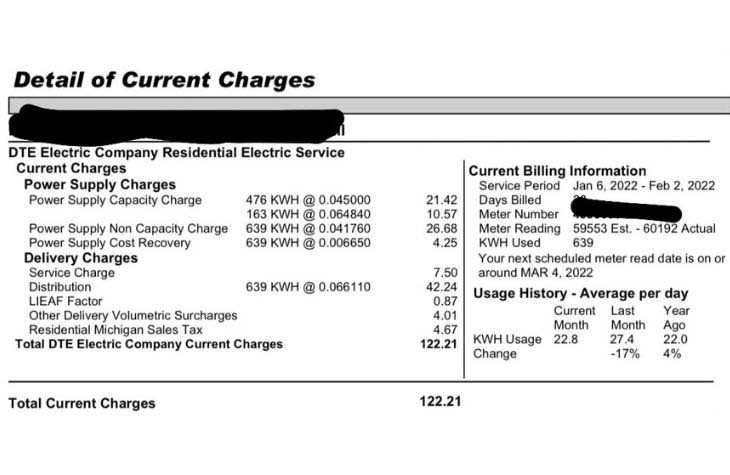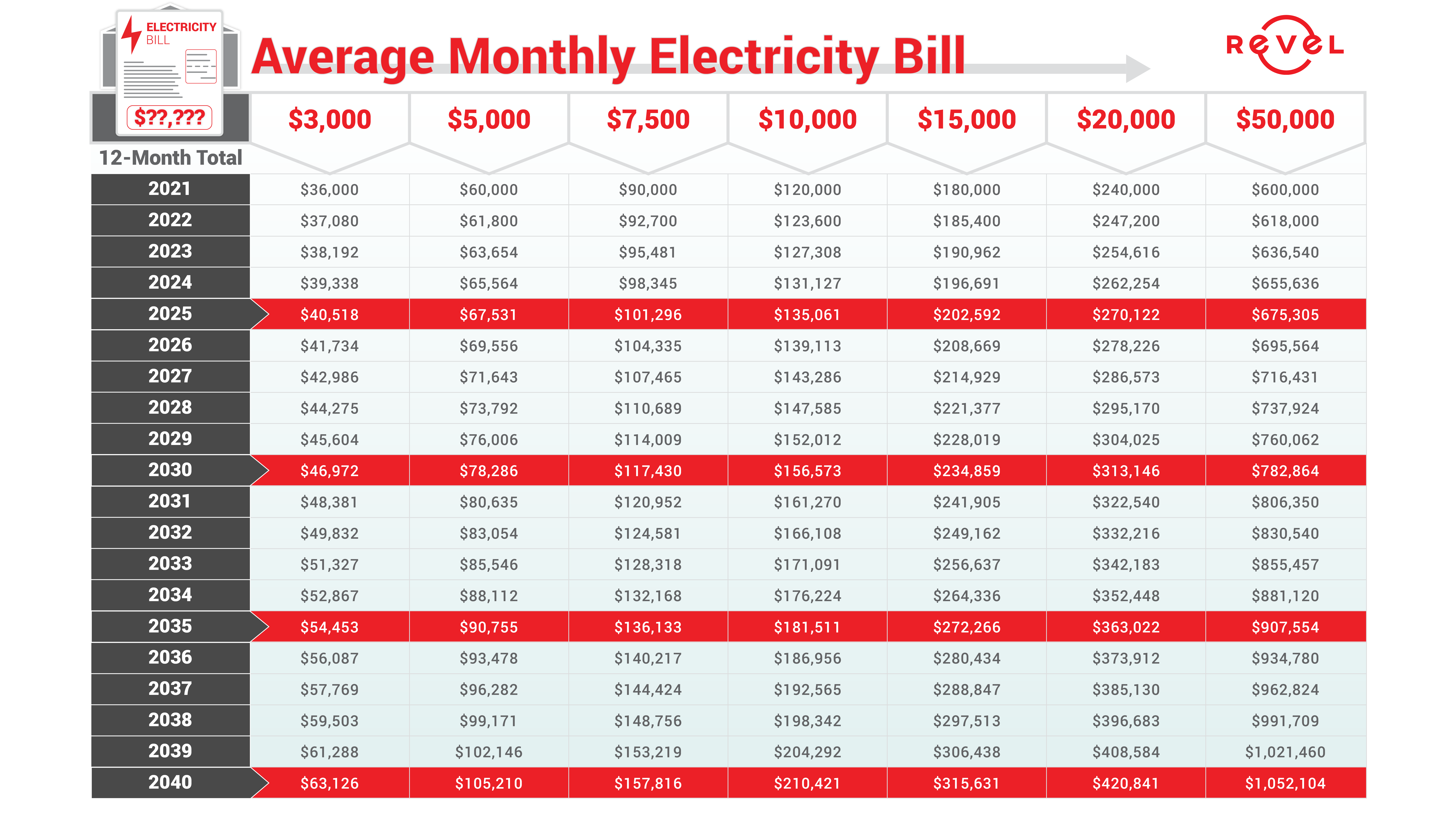Factors Influencing 2 Bedroom Electric Bills

Understanding the factors that contribute to your electricity bill can help you make informed choices to manage your energy consumption and save money. Several factors play a crucial role in determining the cost of powering a 2-bedroom apartment, including the appliances you use, the climate you live in, and the efficiency of your home.
Appliance Energy Consumption
The appliances you use in your home significantly impact your electricity bill. Here’s a breakdown of some common appliances found in a 2-bedroom apartment and their estimated energy consumption:
- Refrigerator: A typical refrigerator consumes around 500 kilowatt-hours (kWh) per year. Energy-efficient models can reduce this consumption by 20-30%.
- Washing Machine: A washing machine uses about 200 kWh per year. High-efficiency models can consume significantly less.
- Dryer: An electric dryer consumes around 1,000 kWh per year. Consider using a clothesline or a dryer with a heat pump for energy savings.
- Dishwasher: A dishwasher consumes around 200 kWh per year. Energy-efficient models can significantly reduce this consumption.
- Oven: An electric oven uses around 1,000 kWh per year. Consider using a microwave or toaster oven for smaller meals to save energy.
- Television: A typical television consumes around 100 kWh per year. Energy-efficient models and using a power strip to turn off electronics when not in use can significantly reduce consumption.
Climate and Geographic Location
The climate and geographic location where you live significantly impact your electricity usage. For example, in areas with hot summers, you’ll likely use more energy for air conditioning, while in areas with cold winters, you’ll use more energy for heating.
For instance, a 2-bedroom apartment in Phoenix, Arizona, with an average annual temperature of 75 degrees Fahrenheit, might see a higher electricity bill compared to a similar apartment in Seattle, Washington, with an average annual temperature of 52 degrees Fahrenheit.
Insulation and Window Efficiency
Insulation and window efficiency play a vital role in reducing heating and cooling costs. Proper insulation helps prevent heat loss in the winter and heat gain in the summer, while energy-efficient windows minimize heat transfer through the glass.
For example, a well-insulated apartment with double-paned windows will require less energy to maintain a comfortable temperature compared to an apartment with poor insulation and single-paned windows.
Heating and Cooling Systems
The type of heating and cooling system you use also influences your electricity bill. Different systems have varying energy efficiencies.
- Central Air Conditioning: Central air conditioning is a common cooling system for homes, but it can consume a significant amount of energy.
- Heat Pump: Heat pumps are energy-efficient systems that can both heat and cool your home. They use less energy than traditional heating and cooling systems.
- Window Units: Window units are less expensive than central air conditioning but can be less efficient. They are also less effective at cooling larger spaces.
Strategies for Reducing Electric Bills: 2 Bedroom Electric Bill

Lowering your electricity bill can be a significant step towards financial savings and environmental responsibility. Implementing a combination of energy-saving practices and smart technologies can lead to substantial reductions in your energy consumption and costs.
Energy-Saving Tips for Appliances
Energy-efficient appliances are designed to use less electricity while maintaining their functionality. These appliances are often equipped with advanced features that help them operate more efficiently.
- Refrigerators: Keep your refrigerator at the recommended temperature of 37°F (3°C) and your freezer at 0°F (-18°C). Ensure proper air circulation by keeping the coils clean and the door properly sealed. Avoid opening the door frequently and consider investing in an energy-efficient model with features like automatic defrosting and LED lighting.
- Washing Machines: Opt for cold water washes whenever possible, as heating water accounts for a significant portion of energy consumption. Utilize the appropriate water levels based on the size of your laundry load, and consider using a high-efficiency washing machine that uses less water and energy per cycle.
- Dryers: Air-dry your clothes whenever feasible, as dryers are among the most energy-consuming appliances in a home. If using a dryer, clean the lint trap regularly and ensure proper ventilation. Consider purchasing an energy-efficient model with features like moisture sensors that automatically adjust drying time based on the load.
Reducing Energy Usage for Lighting and Electronics
Lighting and electronics account for a considerable portion of household energy consumption. Simple changes in your habits and technology choices can significantly reduce your energy bill.
- Lighting: Swap traditional incandescent bulbs with LED bulbs, which are significantly more energy-efficient and last longer. Utilize natural light whenever possible by opening curtains and blinds during the day. Install motion sensors for outdoor lighting to ensure lights are only on when needed.
- Electronics: Unplug electronics when not in use, as they continue to consume energy even when turned off. Utilize power strips with on/off switches to easily disconnect multiple devices at once. Consider using energy-saving settings on your TV, computer, and other devices.
Benefits of Energy-Efficient Appliances and Light Bulbs
Investing in energy-efficient appliances and light bulbs offers numerous benefits beyond simply reducing your energy consumption.
- Lower Energy Bills: Energy-efficient appliances and light bulbs consume less electricity, resulting in lower energy bills and significant financial savings over time.
- Reduced Environmental Impact: By consuming less energy, you contribute to a smaller carbon footprint and reduce your impact on the environment.
- Longer Lifespan: Energy-efficient appliances and light bulbs often have a longer lifespan than their traditional counterparts, reducing the need for frequent replacements.
Smart Home Technology for Energy Optimization, 2 bedroom electric bill
Smart home technology provides an innovative way to monitor and manage your energy consumption, optimizing your energy usage and reducing your bills.
- Smart Thermostats: Smart thermostats learn your heating and cooling preferences and automatically adjust the temperature to optimize comfort and energy savings. They can also be programmed to adjust the temperature when you’re away from home.
- Smart Plugs: Smart plugs allow you to monitor and control the energy consumption of connected devices, turning them on or off remotely. This enables you to ensure that devices are not consuming energy unnecessarily.
- Energy Monitoring Systems: Energy monitoring systems provide real-time insights into your energy consumption patterns, allowing you to identify areas for improvement and adjust your habits accordingly.
Understanding Electricity Rates and Billing

Your electric bill is a detailed document that Artikels your electricity consumption and its associated costs. Understanding the components of your bill and the factors that influence its cost can empower you to make informed decisions about your energy usage and potentially reduce your electricity expenses.
Components of an Electric Bill
Your electric bill is typically composed of several key components:
- Usage Charges: This is the primary component of your bill, reflecting the amount of electricity you consumed during the billing cycle. It is calculated by multiplying your kilowatt-hour (kWh) usage by the per-kWh rate set by your utility company.
- Fixed Fees: These are charges that remain constant regardless of your electricity usage. They cover the cost of maintaining the utility’s infrastructure, customer service, and other administrative expenses.
- Taxes: Most utility companies add taxes to your bill, which can vary depending on your location and the specific taxes levied by your state or local government.
Electricity Rate Structures
Utility companies use different rate structures to determine the cost of electricity for their customers. Here are some common examples:
- Tiered Rates: This structure involves charging different rates for different levels of electricity consumption. As your usage increases, the rate per kWh may rise, encouraging conservation.
- Time-of-Use Rates: These rates vary depending on the time of day or day of the week. This structure aims to encourage energy consumption during off-peak hours when demand is lower and electricity is typically cheaper.
Average Electric Bills for a 2-Bedroom Apartment
The average electric bill for a 2-bedroom apartment can vary significantly depending on location, climate, and energy efficiency. Here is a table comparing the average electric bills for a 2-bedroom apartment in different cities or regions:
| City/Region | Average Electric Bill |
|---|---|
| New York City, NY | $150 – $200 |
| Los Angeles, CA | $120 – $170 |
| Chicago, IL | $100 – $150 |
| Phoenix, AZ | $180 – $230 |
Sample Electric Bill Breakdown
Here is a sample electric bill breakdown illustrating the cost distribution for various appliances and activities in a 2-bedroom apartment:
| Appliance/Activity | kWh Usage | Cost |
|---|---|---|
| Refrigerator | 150 kWh | $15 |
| Air Conditioner | 200 kWh | $20 |
| Lighting | 50 kWh | $5 |
| Electronics | 100 kWh | $10 |
| Water Heater | 100 kWh | $10 |
| Other Appliances | 50 kWh | $5 |
| Total | 650 kWh | $65 |
Note: This is a sample breakdown and actual costs may vary based on individual usage patterns, appliance efficiency, and electricity rates.
2 bedroom electric bill – When budgeting for a two-bedroom apartment, remember to factor in the cost of electricity, especially in a city like Melbourne. While you might be tempted by the convenience of a short stay, consider the potential impact on your energy bill.
If you’re looking for a comfortable and affordable option, exploring 2 bedroom apartments melbourne cbd short stay could be a good starting point. By choosing an apartment with energy-efficient appliances and habits, you can potentially minimize your electric bill, even during a short stay.
A two-bedroom electric bill can be a significant expense, especially in a city like Newark. If you’re looking for a comfortable and affordable living space, you might consider checking out the newark 2 bedroom apartments options available. By choosing a well-insulated apartment, you can potentially minimize your energy consumption and keep those electric bills in check.
